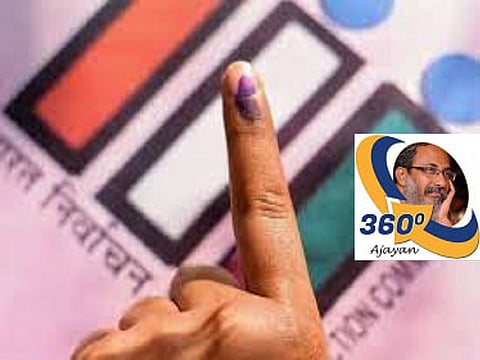

#Ajayan
After the grand completion of the consecration of the Ram temple, a tapestry of transformative initiatives is unfolding. A Union Minister emphatically proclaims the imminent implementation of the much-debated Citizenship Amendment Act. Simultaneously, the ethereal whispers of a Unified Civil Code, already Uttarakhand has made the first move through a Bill in the Assembly, and now the concept of one nation, one election permeate across the nation. Coincidentally, all these endeavours harbour an inherent concept of negating the rich diversity and plurality that have been the hallmarks of this nation.
Surprising the nation and poised to establish a novel paradigm for a populace herded and eager for something new, an extraordinary parliamentary session, sans the customary question hour, was convened. Shrouded in secrecy, the agenda remained veiled until the sudden revelation during the session—an announcement of the creation of an eight-member panel, led by the former President, to delve into the potential realization of the concept of one nation, one election.
The inklings of this development were discernible when the former President engaged in prior consultations with selected political and organizational leaders, and even Supreme Court judges. However, the deliberate exclusion of the Election Commission, the paramount authority in electoral matters, from this undertaking adds an element of obscurity to the proceedings. Coincidentally, the CJI was excluded from a panel to decide nominations for the Election Commission on the direction of the Supreme Court.
The rationale put forth for the one nation, one election idea revolves round the purported advantages of saving time, cost, and resources. While each election, whether at a local or federal level within the country's federal structure—a fundamental tenet of the Constitution—can indeed be perceived as a broader reflection of a national or federal referendum, signifying a salutary trend. It is imperative to recognize that the term of a State Legislature, shaped by the political dynamics within each State, is entirely independent of the Lok Sabha's tenure. The Constitution explicitly delineates the concurrent duration of Assemblies and Parliament, viewing any deviation as a potential violation of the law.
Regarding the pivotal matter of cost reduction, the fundamental query emerges: Do the people not possess the inherent right to choose their government, a cornerstone of democracy, and is any expenditure incurred for this sacred democratic process not inherently justified? People get an opportunity to make parties more accountable during elections. And the more they are, the more are the benefits compared to the cost and should help make democracy better.
Regarding the assertion of implementing the Model Code of Conduct in States twice, it is essential to recognize that this, too, is an integral facet of the democratic process. The duration is not prolonged enough to substantially impede governance as suggested by those behind the new concept. Over the years, this practice has become customary, and there has been no documented instance of it causing impediments to the effective functioning of governance. In a democracy, the voter is always the king.
The rationale behind this initiative, employing tired clichés, and the potential subversion of the political realm, while simultaneously excluding people from active political engagement, remains as a pertinent and pressing question.
Regrettably, the prevalence of popular sloganeering as a component of propaganda has, over the years, left the populace bereft of the agency to forge their own values. There is a palpable trend of individuals seeking their identity from external groups. It becomes imperative for regimes to provide them with novel perspectives at regular intervals to move forward.
This push towards homogeneity has, unfortunately, historical coincidence with the insights of the German philosopher Hannah Arendt, who remarked on a totalitarian regime necessarily trying to establish a “unified and homogenous message” to get off the ground. The insistence on making people resonate with a singular clamour inherently stifles diversity, and plurality becomes yet another casualty in the process.
